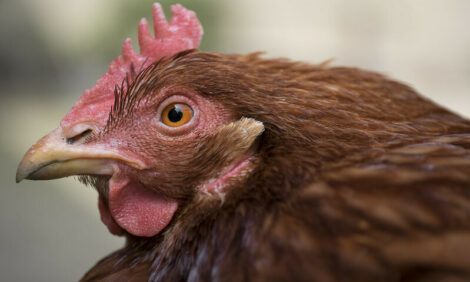



NFU Conference: EU Recession Needs Efficient Farming
EU – As economic recession prompts the Commission to cut budgets, Gerd Sonnleitner, Copa President, has outlined that farmers will be required to manage with less subsidy support while meeting the highest production standards, writes Michael Priestley.Addressing the NFU conference in Birmingham on Wednesday, Mr Sonnleitner voiced concerns over the economic position of Europe’s farmers. One answer, he suggested, was to strengthen farmer’s position in the food supply chain.
While he wishes for the CAP budget to be maintained, he also said that COPA remain realistic. Food production and environmental management goals need to be met through CAP helping farmers acheive 'green growth'.
"Green Growth measures benefit the environment and climate change but in way which also enable farmer to improve their economic position," said Mr Sonnleitner, who advocated stewardship in his NFU address.
He added that through reducing greenhouse gas emissions through better soil grassland management, more efficient use of water and nutrients and more efficient use of residues for bio energy, COPA believe farming can use innovation and technology to improve efficiency.
Mr Sonnleitner was adamant that greening must contribute to growth. He added that the Commission's own impact studies show that greening proposals will lead to higher farm costs and reduced production.
COPA emphasize food security importance and the role agriculture can play in rebuilding member state economies.
Since 2009 the EU has been a net exporter of goods. Mr Sonnleitner said this was in no small part due to agricultural production, which he said is key for growth and employment.
EU farms alone provide jobs for over 26 million people, he revealed, adding that EU citizens appreciate that agriculture does more than produce food.
Mr Sonnleitner stated that over 80 per cent of citizens believe that farming protects and benefits the countryside.
“There is no country in the world which does not have a strategic policy for their agriculture,” said Mr Sonnleitner. “And what does it cost? Less than 1 per cent of EU governments’ total public expenditure.”
A strong and suitable CAP is what COPA want to see take farming into the future. Water and land resource concerns are growing and farmers are beginning to feel the effects of global warming, Mr Sonnleitner said.
“To be honest and Frank, I am extremely surprised when I hear that some people in the UK- even politicians- think that we can do without the CAP.”
“To weaken the CAP now would be like jumping ship, just when a storm was brewing.”
While recognising the complexity of the issue Mr Sonnleitner emphasised the overriding goal of the CAP, ‘to ensure that EU agriculture provides stable, secure and healthy food supplies produced sustainably and competitively'.
Simplification and trade distortions were the two main concerns for COPA.
Mr Sonnleitner said the diversity of European farming must be catered for but not at the risk of increasing Bureaucracy.
He said that trade distortions could arise as different member states move funding between basic payments and pillar two payments.
"Under the proposals currently under discussion, one member state could decide to pay their farmers a basic payment, equal to around two-thirds of their first pillar funds. In contrast, another could decide to shift 15 per cent of their national envelope to the second pillar."
COPA has pledged to work hard to put an end to current farmer uncertainties and hope that an agreement is reached in by July 2013.








